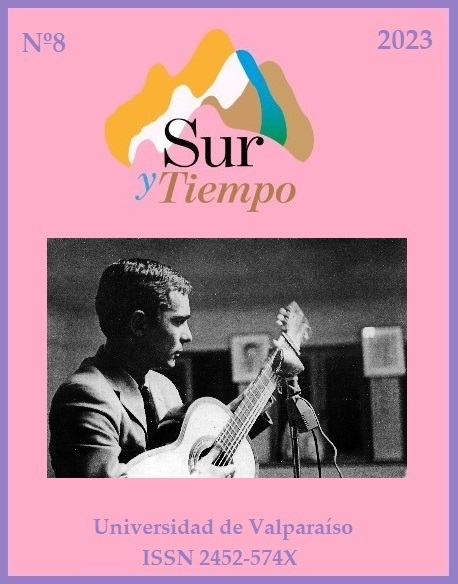The Psychiatric Institution in Chile from the perspective of non-professional healthcare personnel: An exploratory view from the late 20th century.
DOI:
https://doi.org/10.22370/syt.2023.8.3761Abstract
The Psychiatric Institution is the preferred place for the care of individuals with complex mental health pathologies. Within it, two groups can be identified: the patients and the healthcare staff. The latter can be differentiated between professionals, led by physicians, and non-professional healthcare personnel (paramedical assistants and service or janitorial assistants), who are characterized by spending the most amount of time in direct contact with the patient. Therefore, it is of interest to explore the institutional dynamics from the perspective of this group. To achieve this, a qualitative methodology was employed, consisting of interviews with 13 staff members working in the acute sectors of two psychiatric hospitals in the Metropolitan Region of Chile. The results reveal a high degree of hierarchy in the relationships within the institution, with highly defined roles. The non-professional healthcare personnel are tasked with a custodial role (monitoring, setting norms, and controlling patients), constantly exposed to aggression from other staff members and subject to administrative sanctions from the professional group. Since the interview material dates to the late 1999, these findings contribute to current reflections on the dynamics and its relevance in the present.
Downloads
References
Basaglia, F. (1972): “La institucionalización de la violencia”, en La Institución Negada. Barcelona, Barral.
Basaglia, F. (1989a): “La Institucionalización Psiquiátrica de la violencia”, en Razón, Locura y Sociedad. México, Siglo XXI.
Basaglia, F. (1989b): “¿Psiquiatría o ideología de la locura?”, en Razón, Locura y Sociedad. México, Siglo XXI.
Basaglia, F., y Basaglia, F. (1972): ¿Psiquiatría o Ideología de la Locura? Barcelona, Anagrama.
Berger, P. L., y Luckmann, T. (1993): La construcción social de la realidad. Buenos Aires, Amorrortu.
Cooper, D. (1985): Psiquiatría y Antipsiquiatría. Barcelona, Paidos.
Enríquez, E. (1996): “El trabajo de la muerte en las instituciones”, en R. Kaës (Ed.), La Institución y las instituciones. México, Paidos.
Feyerabend, P. (1988): La ciencia en una sociedad libre. México, Siglo XXI.
Foucault, M. (1976): Vigilar y Castigar. México, Siglo XXI.
Foucault, M. (1979): Microfísica del poder (2.a ed.). Madrid, La Piqueta.
Goffman, E. (1970): Internados. Buenos Aires, Amorrortu.
Hernández Sampieri, R., Fernández Collado, C., y Baptista Lucio, P. (2014): Metodología de la investigación. México, McGraw-Hill.
Kaës, R., Bleger, J., Enriquez, E., Fornari, F., Fustier, P., Roussillon, R., y Vidal, J. P. (1991): La institución y las instituciones. México, Paidos.
Laing, R., y Esterson, A. (1995): Cordura, locura y familia. Familias de esquizofrénicos (1967.a ed.). México, Fondo de Cultura Económica.
Lapassade, G. (1977): Grupos, organizaciones e instituciones. La transformación de la burocracia. Barcelona, Granica.
Levinson, D., y Gallagher, E. (1964): Sociología del enfermo mental. Buenos Aires, Amorrortu.
Martí-Tusquets, J. Luis. (1982): Psiquiatría Social. Barcelona, Herder.
Mascayano, F., Alvarado, R., Martínez-Viciana, C., Irarázaval, M., Durand-Arias, S., Freytes, M., Montenegro, C., Susser, E., y Bruni, A. (2021): “30 years from the Caracas Declaration: The situation of psychiatric hospitals in Latin America and the Caribbean prior, during and after the COVID-19 pandemic”, Social Psychiatry and Psychiatric Epidemiology, 56(8), 1325-1327. https://doi.org/10.1007/s00127-021-02100-1
Montenegro Cortés, C., González Moller, J., Irarrázaval Dominguez, M., Thomas, F., y Urrutia Ortiz, J. (2023): “Moving psychiatric deinstitutionalisation forward: A scoping review of barriers and facilitators”, Cambridge Prisms: Global Mental Health, 1-26. https://doi.org/10.1017/gmh.2023.18
Morales Saéz, N. (2010): “El cuerpo, la medicina y la tecnociencia: Apuntes históricos sobre la medicalización”, Revista Latinoamericana de Estudios sobre Cuerpos, Emociones y Sociedad, 2(3), 82-85.
Morales Sáez, N. (2023): Del asilo al activismo. Hacia una antropología política de la salud mental. Tesis Doctoral inédita, Universitat Rovira i Virgili, Tarragona.
Nietzsche, F. (2004): La voluntad de poder. Madrid, Edaf.
Onofri, F. (1970): Poder y estructuras sociales en la sociedad industrial de masas. Caracas, Tiempo Nuevo.
Organización Panamericana de la Salud (1990): Declaración de Caracas. https://www.paho.org/hq/dmdocuments/2008/Declaracion_de_Caracas.pdf
Rhodes, L. A. (1995): Emptying Beds: The Work of an Emergency Psychiatric Unit. California, University of California Press.
Salazar, L. (1987): “Michel Foucault: Un ejercicio de crítica materialista”, en A. Pereira (Ed.), La Herencia de Foucault. México, El Caballito.
Downloads
Published
Versions
- 2023-08-29 (2)
- 2023-08-26 (1)
How to Cite
Issue
Section
License
Aquellos autores/as que tengan publicaciones con esta revista, aceptan los términos siguientes:- Los autores/as conservarán sus derechos de autor y garantizarán a la revista el derecho de primera publicación de su obra, el cual estará simultáneamente sujeto a la Licencia de reconocimiento de Creative Commons (CC BY-NC-ND 4.0 International). Está permitido el uso de este material con fines no comerciales dispuestos por el creador/es y las atribuciones otorgadas al editor. NO se permiten derivados de esta versión.
- Los autores/as podrán adoptar otros acuerdos de licencia no exclusiva de distribución de la versión de la obra publicada (p. ej.: depositarla en un archivo telemático institucional o publicarla en un volumen monográfico) siempre que se indique la publicación inicial en esta revista.
- Se permite y recomienda a los autores/as difundir su obra a través de Internet (p. ej.: en archivos telemáticos institucionales o en su página web) antes y durante el proceso de envío, lo cual puede producir intercambios interesantes y aumentar las citas de la obra publicada. (Véase El efecto del acceso abierto).





